How Can An Orthodontist Help Me?
Along with improving your smile and appearance, comprehensive orthodontic treatment can include aligning the teeth, orofacial muscles, and skeleton so they can work together in a healthy, functional system. At Showtime Smiles Orthodontics, we consider our patient’s health and long term wellbeing first when we recommend any orthodontic procedure.
Crooked teeth may seem like a minor inconvenience now, but they could result in serious health issues later down the line. The best way to know for sure is by seeing a professional orthodontist, so they can identify any present or developing problems. We recommend scheduling a free consultation with our office if you or your child have any of the following concerns:

Common Orthodontic Concerns
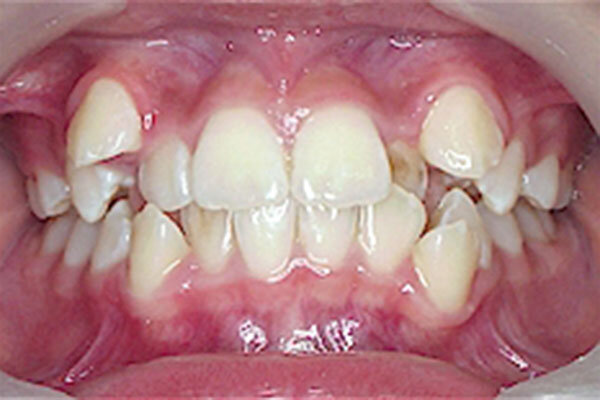
Crowding
Crowding of the teeth is probably the most common orthodontic problem. This is when your teeth are too large or if you have too many teeth to fit in your small jaws. Crowded teeth can be unattractive and difficult to clean. They can also create problems with chewing and biting.
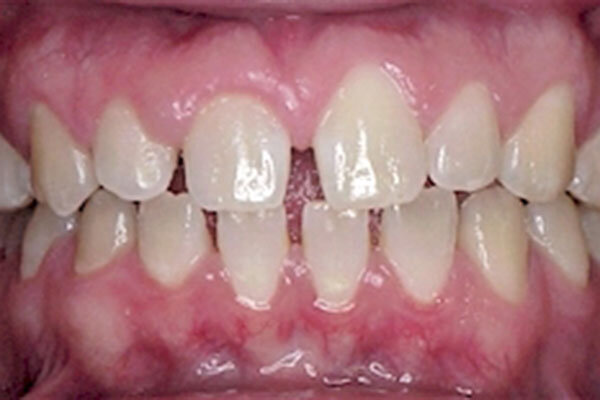
Spacing
Spacing is having gaps (or spaces) between your teeth. This can be the result of missing teeth or smaller teeth that are not big enough to fill the entire jaw. Spacing can often be closed with braces alone, but sometimes will require cosmetic bonding to make the teeth more aesthetic and of proper width.
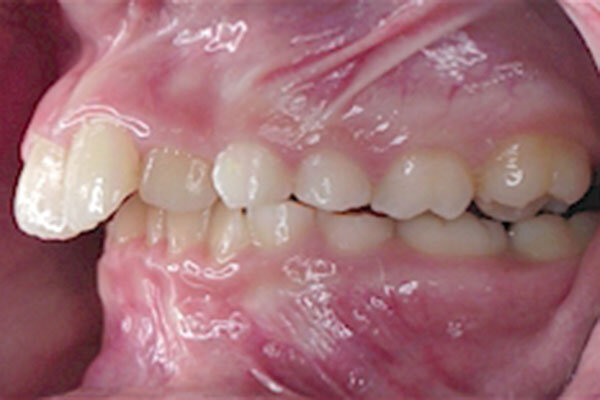
Protruded Teeth
Protruded teeth are upper front teeth that extend further out over the lower front teeth and cause a misalignment in your bite, such as causing the lower teeth to bite into the roof of your mouth.
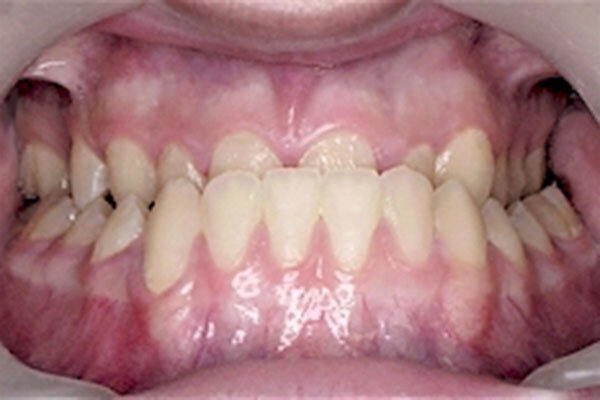
Underbite
Underbite is when your lower front teeth are too far forward or your upper front teeth are too far back. This is sometimes known as a “bull dog” appearance. This is also an abnormal bite and can often be corrected with braces and elastics, but severe cases may require surgery. Early treatment (before puberty) is highly recommended in these cases.
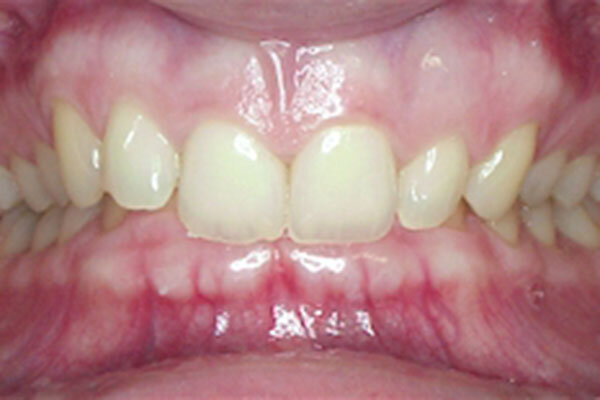
Deep Bite
A deep bite is an excessive overlap of your front teeth. This is also known as an excessive over bite and can sometimes result in the lower front teeth biting into the roof of the mouth (palate). A deep bite can cause excessive wear on the teeth and even damage to the palate.
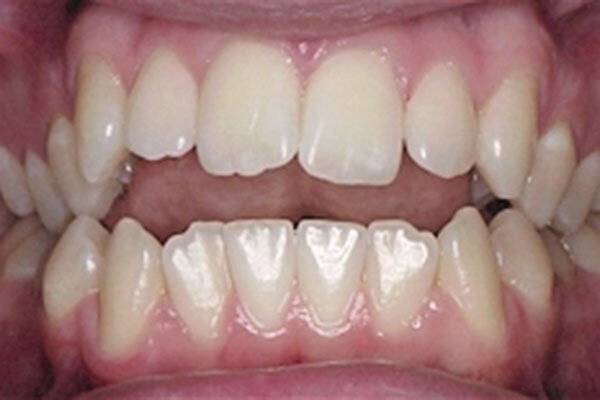
Open Bite
An open bite is when your front teeth do not overlap at all, while the back teeth are biting together. Open bites are usually caused by abnormal habits such as thumb sucking and tongue thrusts. An open bite can cause speech problems and eating problems as well.
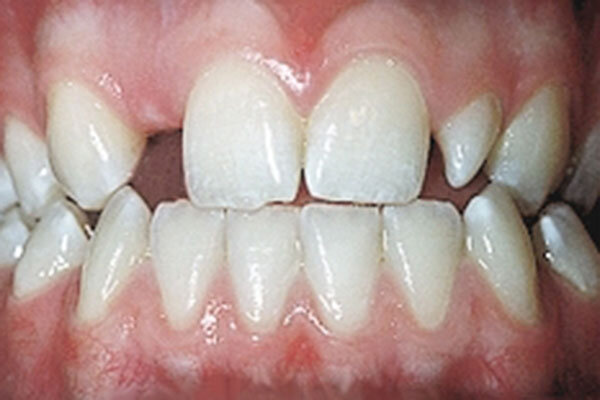
Missing Teeth
Many patients are both with one or more missing teeth. This can cause excessive spaces and bite problems due to an unequal number of teeth between the upper and lower jaws. Braces can help move the teeth into the proper position and retainers are used to hold the space until you are ready for a dental implant or bridge to replace the missing tooth.
Other Ways Orthodontic Treatment Can Help You
What is a misaligned jaw? Well, it’s exactly what it sounds like – if the upper and lower teeth do not meet properly when you bite down, it is often because the jaw is misaligned. Many, if not most, people have a mild to severe overbite, underbite, or crossbite. In some cases, a misaligned jaw is harmless. However, it can also cause a whole host of problems, such as headaches, ear pain, breathing problems, excessive wear of teeth, and difficulty chewing.
The orthodontist will be able to get a closer look at the way the teeth and jaws are aligned with advanced technology, such as x-rays and intraoral photography. This will give the orthodontist an in-depth understanding of your bone structure that can’t be seen with the naked eye.
A gap-toothed smile can be adorable, even considered high fashion nowadays! Even though we’re all about keeping up with the latest trends at Showtime Smiles Orthodontics, having multiple gapped teeth can be difficult to clean and maintain at times. Food can easily get stuck between gaps, creating opportunities for plaque and dental decay. Spaced teeth are can be caused by genetics, thumb sucking, tongue thrusting, or even periodontal disease.
Most of the time, diastema can be fixed with orthodontic treatment by gradually tightening the teeth until there is no space left. If the teeth are too small, dental veneers may need to be placed over the gaps after the braces. The orthodontist can give you a better understanding of your treatment options.
The temporomandibular joint connects the jaw to the temporal bone and allows the mouth to open and close smoothly. Pain in this area could be attributed to arthritis, trauma, mouth clenching, or an incorrect bite. TMD or temporomandibular joint disorder is often characterized by:
Clicking or popping noise when opening or closing the mouth
Headaches or pain near the temporal area and ears
Soreness in the jaw after eating or speaking
Locking of the joint or difficulty opening the mouth
This problem can actually be fixed with orthodontic treatment. If the joint is in the wrong place, it can often be corrected by realigning the jaw where it’s supposed to be with braces.
Grinding teeth, also known as bruxism, can be a huge problem if left untreated. Frequent and severe bruxism can lead to headaches, damaged, teeth, jaw disorders, and other disorders. While there’s no definitive cause of bruxism, many blame it on sleep apnea, stress, or an abnormal bite. When teeth aren’t aligned correctly, it can prompt teeth grinding. The best way to treat bruxism is by visiting an orthodontist or dental professional. They can recommend a mouth guard, sleep mask, or orthodontic treatment to circumvent grinding in the future.
When teeth are not in the right position, they can get crowded, leaving little space for other teeth to grow out. Impacted teeth are often caused by crooked teeth and they can lead to problems like gum disease or infection because they’re difficult to clean.
This can be easily prevented by early interceptive orthodontic treatment for children who are still losing their baby teeth. By aligning the jaw and facial structure before the adult teeth grow in, this treatment ensures that there is enough space in the mouth for the permanent teeth to develop correctly.
For our patients who have passed the stage for early interceptive treatment, braces can still help! Repositioning the teeth can give the dentist enough space to remove the impacted tooth without affecting other parts of the jaw and teeth. Orthodontics also fill the gap left by the impacted tooth.
Many people that experience breathing difficulties during the day or at night may benefit from orthodontic treatment. Expanding the palate and correcting the bite will open the airway, allowing for easier breathing through the mouth. A misaligned jaw could also be affecting the air passageway. If the jaw is pushing against the joints, it could make opening the mouth to breathe difficult, especially when lying down.
Having trouble communicating? Braces can fix that! Often, people who have speech impediments have gapped teeth, open bites, or malocclusions that are easy to fix with braces. An open bite is when the teeth don’t meet when the mouth is closed and malocclusion is a fancy word for misaligned jaw (see above). This could affect a person’s ability to pronounce certain letters. Though it may be difficult to pinpoint the exact reason behind a speech impediment, the orthodontist will be able to tell you whether braces could benefit from braces.
Severely crooked teeth could actually affect your ability to brush your teeth! Like taking a picture, the right angle and position are critical for getting your smile camera-ready. When teeth overlap and crowd each other, it’s hard to reach every nook and cranny when you brush and floss. Plaque builds up much more easily. If you find yourself getting cavities and toothaches all the time, you may want to make an appointment with the orthodontist.
It’s also important to note that once you get braces, it’s even more important to keep up a thorough oral health routine. Brackets or Invisalign can trap food debris, allowing bacteria to damage teeth. While you have them on, you may need to brush, rinse, and floss more than twice a day. However, the results will make your life a lot easier.
If you or your child participate in contact sports like football or basketball, there’s a high chance of facial injury and trauma. When the jaw is improperly positioned, this could put you or your child at a higher risk of damage. To avoid these problems, we recommend asking the orthodontist about how malocclusions or jaw misalignment could affect performance in sports. There are also tons of mouthguards for people with or without braces to protect their teeth when playing sports. To learn more, check out our orthodontic guide about proper protection and equipment for sports.
Lack of confidence from your teeth can lead to a negative body issues and even mental health disorders. Though self esteem shouldn’t be solely based on appearance, having crooked teeth or a speech impediment can be difficult to deal with, especially in our day and age. At Showtime Smiles Orthodontics, we want all our patients to be comfortable and confident when they smile!
We’re stuck with our smiles for the rest of our lives, so we deserve to be happy with them! Our mouths and teeth serve important purposes such as talking, eating, singing, breathing, and more, which is why we should take care of them. At Showtime Smiles Orthodontics, our orthodontist can determine if there are any underlying structural problems and correct them with braces or Invisalign. If you’re worried about what to expect at the orthodontist, feel free to give us a call with any questions you have. We’re here to help!
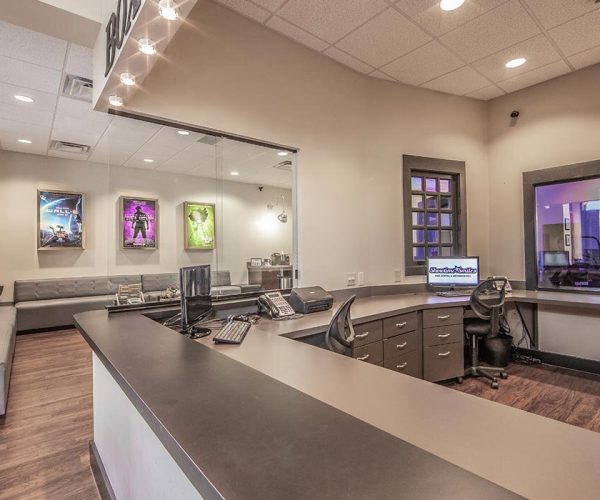
Our Office
- Tues-Fri: 8AM - 5PM
Hours are subject to change without notice.
Please call the office before coming in